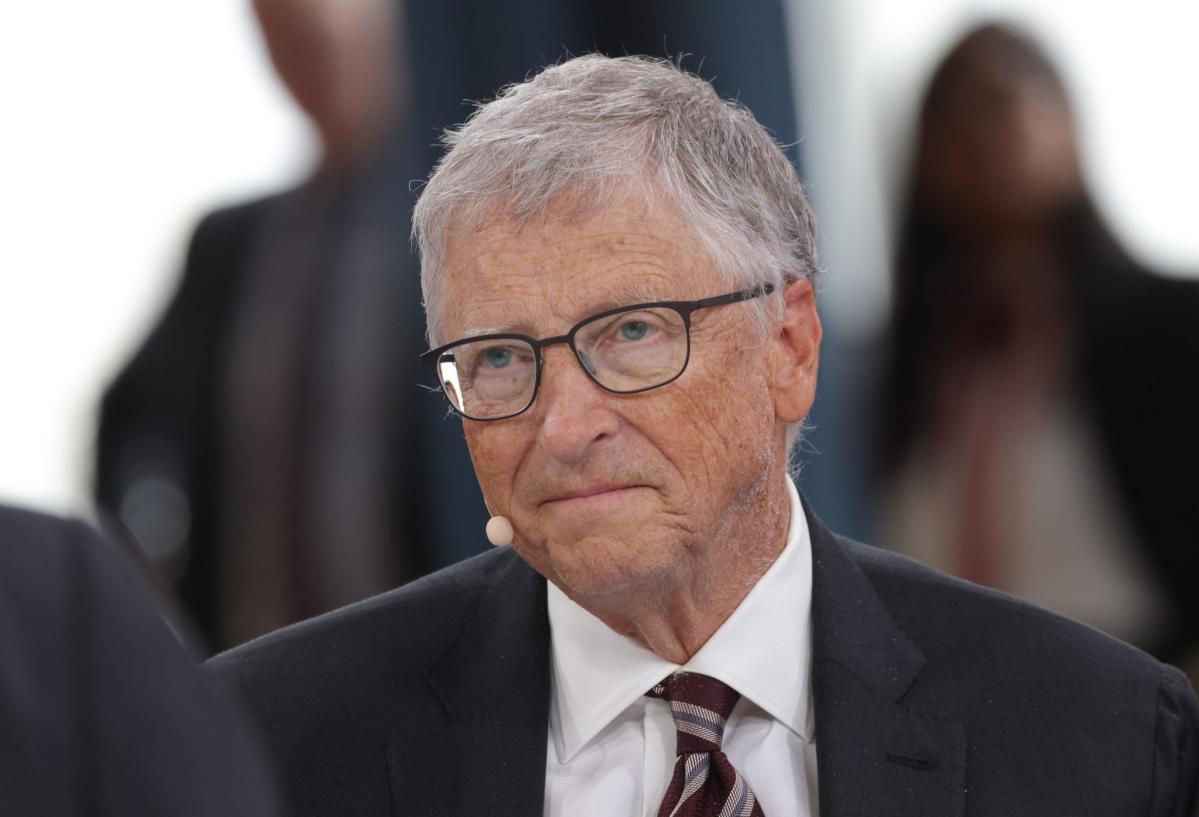There are some questions that keep even billionaire philanthropist and entrepreneur Bill Gates up at night. Will there be another pandemic? Are global tensions going to reach a boiling point, sparking a global war? What would push us to that precipice?
While Gates, a father of three, is determinedly optimistic about the likes of AI and eradicating deadly diseases like polio, he remains concerned about either a widespread war or another pandemic.
He cited “a lot of unrest” in the world at the moment, which could spark “a major war.”
But even if that conflict is avoided, “then yes, there will be another pandemic, most likely in the next 25 years,” Gates told CNBC Make It.
The Microsoft cofounder was unimpressed with the global response to the pandemic and said crucial lessons have been ignored.
He was critical of America’s response to the crisis, saying: “The country that the world expected to lead and be the model fell short of those expectations.
“Although some of the lessons from [the coronavirus] pandemic have been learned, [it’s been] way less than I would expect, sadly,” the 69-year-old added.
Gates isn’t alone in his disappointment; many other global health advocates are also pushing the Western world for better responses to emerging outbreaks.
Professor Paul Hunter is an expert in the epidemiology of emerging diseases based out of the University of East Anglia in Norwich, England.
Speaking to Fortune last month about a deadly new strain of mpox, Professor Hunter said: “In the West we only really get interested in a disease when it starts directly threatening us. The problem is that so many of these diseases could have been prevented from spreading if the countries on the ground had had the resources.”
This is a recurring theme, one which was apparent during COVID, he added: “The West only gets concerned about controlling epidemics when we start seeing cases, and then it is almost always too late to eradicate the infection.”
Gates echoed that he hopes health bodies will begin thinking more long-term in the coming years, adding: “Getting our thoughts together about what [we did] well, what we didn’t do well, is still not happening… Perhaps, in the next five years, that’ll get better.
“But, so far, it’s quite surprising.”
This message is also being passed down from the top of the tree: the World Health Organization (WHO).
Earlier this year, WHO shared a warning about the spread of the influenza virus through cattle, birds, and humans and urged nations to work together to be better prepared for a pandemic.
“There is one certainty: There will be another flu pandemic in the future,” said Nicola Lewis, director of the Worldwide Influenza Centre.
Lewis added: “My message to international communities is that we have to set aside our reticence. We have to set aside our parochial concerns and remember the impacts and the devastating consequences of a global pandemic from whatever disease agent it comes from.”
World war fears
Gates—who is worth $157 billion per the Bloomberg Billionaires Index—isn’t the only influential name warning about a potential global conflict.
JPMorgan Chase CEO Jamie Dimon has previously said geopolitical tensions are the biggest threat facing the global economy, telling CNBC affiliate network CNBC TV-18 last September: “We have dealt with inflation before, we dealt with deficits before, we have dealt with recessions before, and we haven’t really seen something like this pretty much since World War II,” he told the Indian news channel.
“I think America takes [Russia’s invasion of Ukraine] very seriously, I’m not quite sure how the rest of the world does. You have a European democratic nation invaded under the threat of nuclear blackmail. I think it’s been a good response, but it’s going to affect all of our relationships until somehow the war is resolved.”
This story was originally featured on Fortune.com



